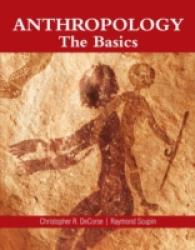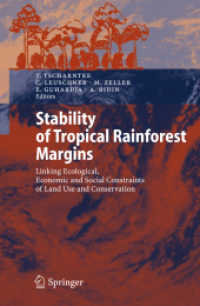Full Description
Hidden Criticism of the Angry Tyrant in Early Judaism and the Acts of the Apostles adds to the current literature of imperial-critical New Testament readings with an examination of Luke's hidden criticism of imperial Rome in the Acts of the Apostles and in Paul's speech on the Areopagus in Acts 17. Focusing on discursive resistance in the Hellenistic world, Drew J. Strait examines the relationship between hidden criticism and persuasion and between subordinates and the powerful, and he explores the challenge to the dissident voice to communicate criticism while under surveillance. Strait argues that Luke confronts the idolatrous power and iconic spectacle of gods and kings with the Gospel of the Lord of all—a worldview that is incompatible with the religions of Rome, including emperor worship.
Contents
Chapter One—The Acts of the Apostles and Empire
Part I: Objects of Resistance
Chapter Two—Profiling Power: Divine Honors and Kingship Literature
Chapter Three—Hybrid Divine Honors in the Epigraphic Record
Part II: Strategies of Resistance
Chapter Four—Jewish Discursive Resistance
Chapter Five—The First Commandment and Hellenistic Monarchy
Chapter Six—The Second Commandment and Hellenistic Monarchy
Chapter Seven—The Wisdom of Solomon and Empire
Part III: Discursive Resistance and the Acts of the Apostles
Chapter Eight—The Politics of Luke: Acts and the Cosmology of Empire
Chapter Nine—The Areopagus Speech and Political Idolatry
Chapter Ten—The Areopagus Speech as Resistance Literature?








